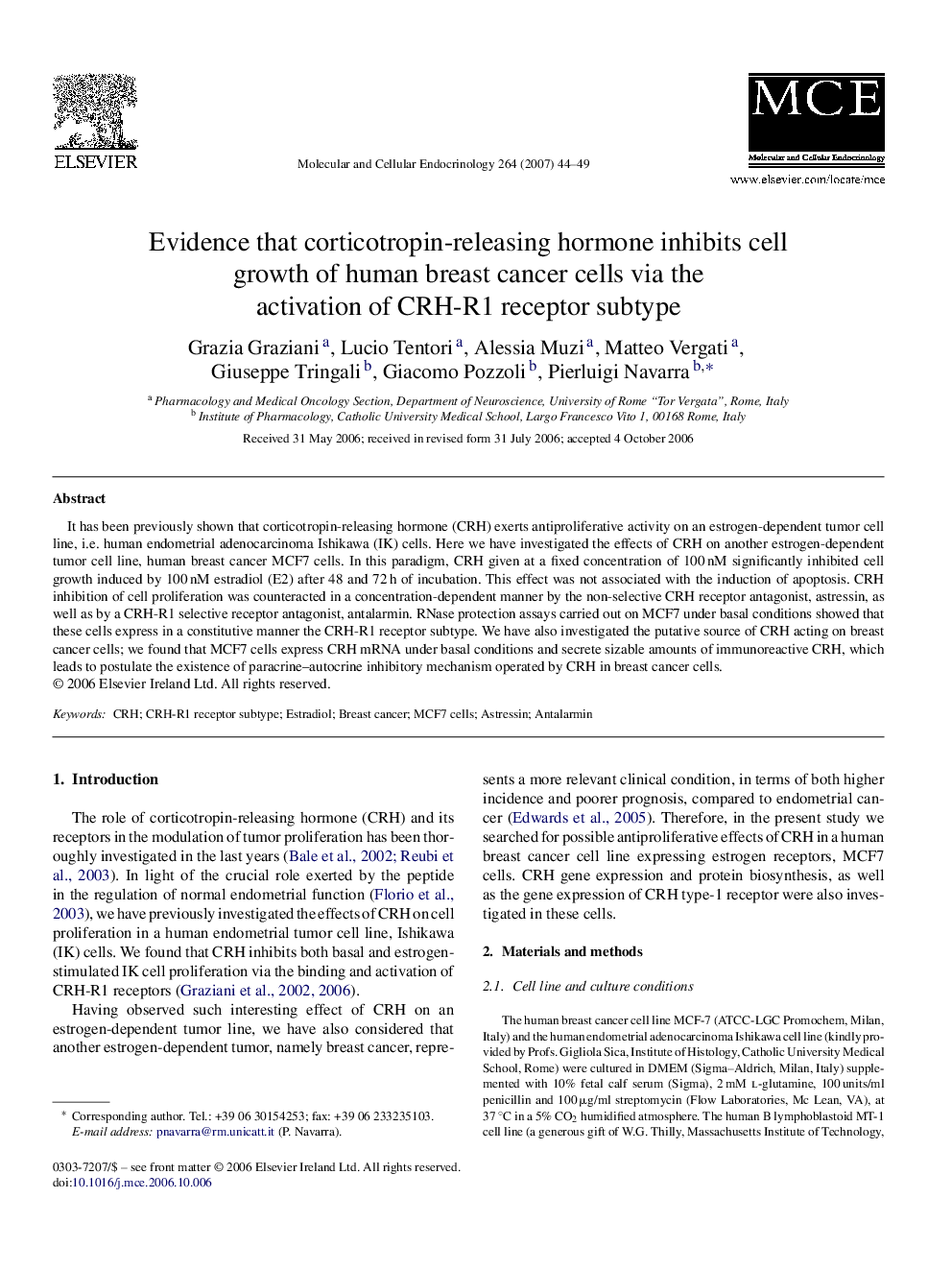| Article ID | Journal | Published Year | Pages | File Type |
|---|---|---|---|---|
| 2197958 | Molecular and Cellular Endocrinology | 2007 | 6 Pages |
It has been previously shown that corticotropin-releasing hormone (CRH) exerts antiproliferative activity on an estrogen-dependent tumor cell line, i.e. human endometrial adenocarcinoma Ishikawa (IK) cells. Here we have investigated the effects of CRH on another estrogen-dependent tumor cell line, human breast cancer MCF7 cells. In this paradigm, CRH given at a fixed concentration of 100 nM significantly inhibited cell growth induced by 100 nM estradiol (E2) after 48 and 72 h of incubation. This effect was not associated with the induction of apoptosis. CRH inhibition of cell proliferation was counteracted in a concentration-dependent manner by the non-selective CRH receptor antagonist, astressin, as well as by a CRH-R1 selective receptor antagonist, antalarmin. RNase protection assays carried out on MCF7 under basal conditions showed that these cells express in a constitutive manner the CRH-R1 receptor subtype. We have also investigated the putative source of CRH acting on breast cancer cells; we found that MCF7 cells express CRH mRNA under basal conditions and secrete sizable amounts of immunoreactive CRH, which leads to postulate the existence of paracrine–autocrine inhibitory mechanism operated by CRH in breast cancer cells.
